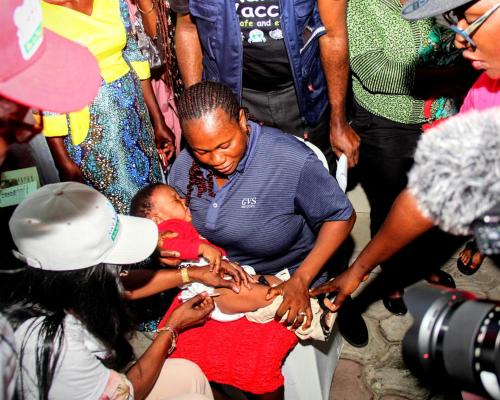
Yenagoa, 05 December, 2024 – Happiness Iniye Wilson, with her 11-month-old daughter Ayibabomote strapped to her back, walked into the Family Support Programme Clinic in Yenagoa, Bayelsa State. The clinic is one of the key sites for the introduction of the R21 malaria vaccine, a major public health intervention aimed at protecting children from one of the deadliest diseases in Nigeria.
“This is a relief for mothers like me,” said Wilson, beaming with optimism. “I’ll make sure to inform other mothers about this life-saving vaccine so they too can protect their children.”
A Lifesaving Intervention
The R21 vaccine launch in Nigeria marks a significant milestone in the fight against malaria, a disease that remains a leading cause of illness and death, particularly among children under five years of age. Nigeria accounts for approximately 27% of the global malaria burden, according to the World Malaria Report 2022.
Over 97% of Nigeria’s population is at risk of malaria, making the vaccine introduction a crucial addition to the country’s arsenal of interventions, which already includes insecticide-treated nets, indoor residual spraying, seasonal malaria chemoprevention, and effective case management.
The vaccine rollout is being implemented in phases, starting with Bayelsa in the south and Kebbi in the north—two states with high malaria burden.
Phased Rollout in High-Burden Areas
Nigeria has received one million doses of the malaria vaccine, with 846,200 doses provided by GAVI, the Vaccine Alliance, and 153,800 doses procured by the Nigerian government. The vaccine schedule involves four doses: the first at five months of age (up to 11 months if late), the second at six months, the third at seven months, and a booster at 15 months (up to 23 months or later if delayed).
At the launch event in Bayelsa, Dr. Appah Williams, Executive Secretary of the Bayelsa State Primary Health Care Board, emphasized the importance of this initiative. “What we achieve here will set the stage for other states as we scale up nationally,” he said.
Dr. Williams highlighted the large turnout of caregivers and detailed the community engagement efforts, which include grassroots campaigns, media outreach, and stakeholder collaboration to build public trust in the vaccine.
The First Lady of Bayelsa State, Dr. Gloria Ebibomo Diri, encouraged families to participate: “Let us spread the word about the importance of vaccination and create a brighter, healthier future for our children.”
Professor Seiyefa Brisibe, Bayelsa’s Commissioner for Health, praised the dedication of healthcare workers and partners: “Every malaria vaccine administered, every child protected, and every parent informed brings us closer to eliminating malaria in Nigeria.”
Progress in Kebbi State
Similarly, Kebbi State held its launch event in Birnin Kebbi, where Deputy Governor Alhaji Umar Abubakar-Tafida described the vaccine introduction as a “symbol of hope” and reaffirmed the government’s commitment to eradicating malaria. Representing Governor Idris, the deputy governor emphasized the vaccine’s inclusion in routine immunization programs.
State Commissioner for Health, Comrade Yunusa Musa Ismail, explained that the selection of Kebbi and Bayelsa was strategic, given their high malaria case numbers. “Our target is to vaccinate 179,542 children aged five to fifteen months with the four doses,” he said. Kebbi has received 595,980 doses to support this goal.
Traditional leaders, including the Emir of Gwandu, Alhaji Muhammadu Iliyasu Bashar, pledged their support for the campaign, underscoring the role of community involvement in its success.
A Call to Action
WHO’s Country Representative in Nigeria, Dr. Walter Kazadi Mulombo, congratulated the country on this milestone and reiterated the organization’s commitment to supporting the government in extending the vaccine rollout to other states. He encouraged parents to ensure their children receive the vaccine and urged health workers to integrate other essential child health services during the campaign.
“This initiative signals a brighter future for Nigeria’s children,” said Dr. Mulombo.
Bright Future Ahead
Health worker Amagbopere Patience, who administered the first dose in Bayelsa, shared her experience: “Since we commenced vaccination, parents have been eager. There’s been no resistance, only enthusiasm.”
With this phased rollout, Nigeria takes a bold step toward reducing the toll of malaria and protecting its most vulnerable population—children.

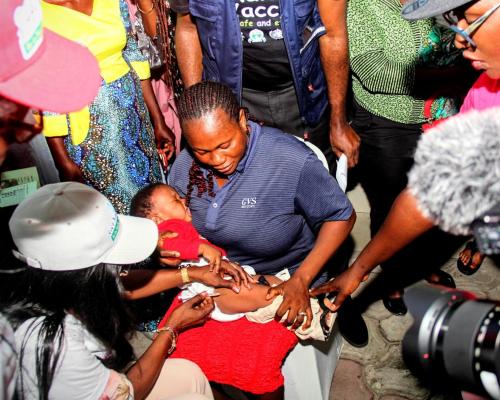



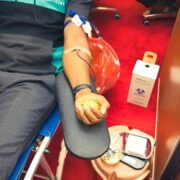
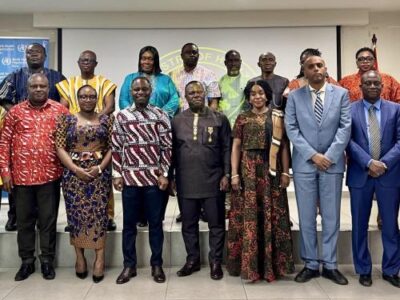


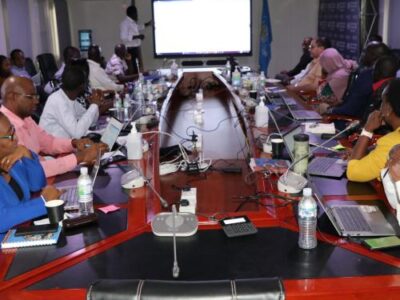

Comments